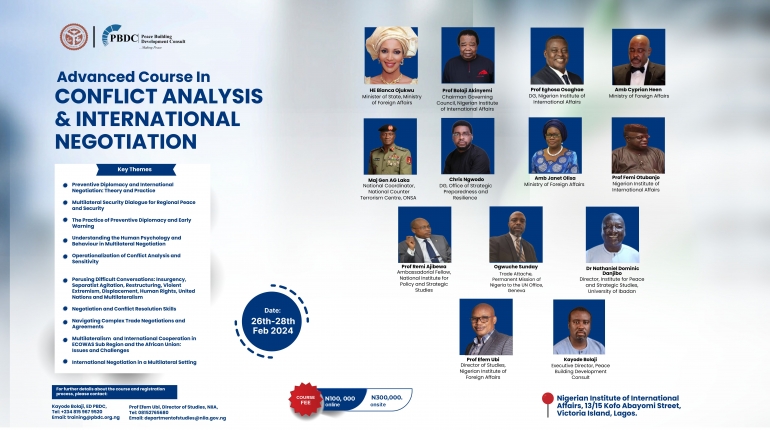
ADVANCED COURSE IN CONFLICT ANALYSIS AND INTERNATIONAL NEGOTIATION
Today, more than 90 per cent of armed conflicts occur within rather than between states. With relatively few inter-state wars, traditional rationales for intervention have become decreasingly significant. At the same time, humanitarian and human rights sanctions have been used far more frequently than ever before against armed responses to violent conflicts. The need to resolve, manage, and prevent these conflicts and equally deal with the socio-economic challenges arising from them has become a source of worry to peace and security analysts.
One of the major encouraging developments of the last decades has been an increase in the number of violent conflicts settled by negotiation. As a result of these actions, it has reinforced the Dutch philosopher Erasmus, theory that prevention is better than cure by addressing the root causes of conflicts and not merely their symptoms. Early warning is now universally agreed to be a necessary condition for effective preventive diplomacy.
International negotiations are complex because the parties involved do not have a pre-established structural relationship. There are also multiple roles and no established concept of how they should be defined. The negotiation process typically involves a preliminary draft that is used as a starting point. Delegations can then submit proposals to add, remove, or amend parts of the text.
Effective understanding of the elements and components of negotiation and skills are important for managing interdependencies, influencing outcomes, and leveraging power.
It is in light of the foregoing that the Nigerian Institute of International Affairs (NIIA) and the Peace Building Development Consult (PBDC) are hosting this 3-day Advanced Course in Conflict Analysis and International Negotiation.


